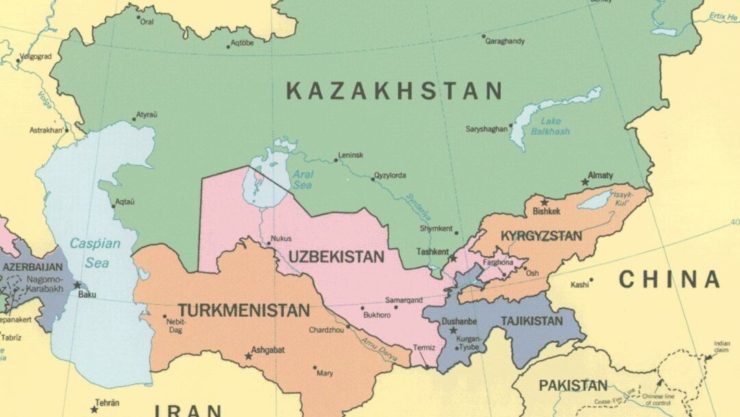
The ever-expanding list of Western sanctions on Russia has an unexpected and less-than-desirable effect. Central Asian countries are experiencing unheard-of growth due to Russian businesses and investors moving to the region.
A brief look at Tajikistan’s 7.5% GDP growth, Uzbekistan’s predicted 6.5%, Kazakhstan at 5%, followed by Kyrgyzstan with 4.6%, and the brilliant economic warfare waged by the West is a losing proposition. North Americans and Europeans are the only people being hurt by the proxy war in Ukraine and its economic facets.
Washington’s geniuses say these Central Asian countries are helping Russia circumvent sanctions imposed by the West over the Ukraine crisis. Given that the E.U. is buying gas and oil from Russia via Indian refineries like there’s no tomorrow, it seems like a no-brainer that the former Soviet republics would want to benefit from Western stupidity. Despite Washington and its allies pulling out all the stops against Russia, many countries worldwide are benefitting from and helping the Russian economy. Even with military spending projected to rise by 70%, the Russian deficit should be less than 2%. And there will be no borrowing to compensate.
Another conduit for expanded trade and cooperation is the Eurasian Economic Union with Russia, Belarus, and Armenia. This element facilitates economic integration through common markets, harmonizing regulation, and empowering free trade zones. These Asian partners are taking full advantage by helping Russia export commodities and products and importing from third parties to export into Russia. Consumption is up on both ends, which is good for Russia and her trading partners.
Russian companies have primarily chosen Kazakhstan and Kyrgyzstan due to their geographic proximity and shared cultural values. However, according to Silk Road Briefing, Turkmenistan is experiencing a similar economic boom, with a GDP growth topping 6.2% this year. In the capital Ashgabat, Russian infrastructure and technological investment are fueling making that city smart.
There’s also an insult to go along with the injury Russia’s economic shift has caused. Companies like Burger King, with over 800 stores in Russia, are still open despite promises to close. The other day, I received a photograph of Coca-Cola cans being shipped to the Russian market by none other than the Taliban. And exports from the U.S. and European countries to these Central Asian importers are booming. In Sweden, for instance, in 2023, the volume of exports to Kazakhstan increased by 140% compared to the previous year. These kinds of figures are mirrored across a dozen Western countries.
Meanwhile, most Western countries show negative growth in exports comparatively. Long story short, the Russians have managed to circumvent most economic measures levied against them. Data shows that the most extensive trade diversion to Central Asia is for the U.S., the U.K., and Denmark. At the exact moment, Iran-Uzbek non-energy bilateral trade is up 103%. Iran’s share of exports to Uzbekistan is growing exponentially as the BRICS and other nations churn out the new multipolar world that’s already remapping all economic investment and business paths.
Finally, News that Iran opened a UAV Factory in Tajikistan producing the Ababil-2 combat-capable drone has Israeli lobbyists frantic for the U.S. and its allies to do something military, economic, or through the use of witchdoctors to prevent the Iranians from, according to the leadership,
“Endangering the entire Middle East and Central Asia.”
It seems to me the US of A and the old European colonial powers are the only ones endangering anybody these days. Let’s hope the next election will bring some sane leadership into the international arena.
Phil Butler, is a policy investigator and analyst, a political scientist and expert on Eastern Europe, he’s an author of the recent bestseller “Putin’s Praetorians” and other books. He writes exclusively for the online magazine “New Eastern Outlook”.